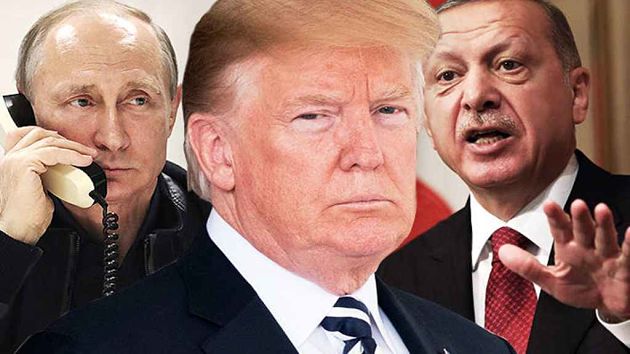Last week we wrote about the crisis in relations between Ankara and Moscow over the events in Idlib, Syria, which raises the question of priorities in Turkish foreign policy (https://golosislama.com/news.php?id=38056). And now it seems that the Turkish leadership is hinting at criticism of its Russian counterpart and trying to seek support from its American colleagues.
In particular, Recep Tayyip Erdogan commented last week on his relationship with Vladimir Putin and the accusations against Turkey from Russian diplomatic sources. He said, “Who should we believe? 3-4 days ago I spoke with Putin. It was an excellent conversation. The next day, statements [from the Russian side] appeared with serious accusations against Turkey. There was nothing like that in the conversation with Putin. What is happening with you? It means one thing above and another below.”
It has also become known that Erdogan discussed the situation in Idlib with Donald Trump the day before yesterday, on February 15. As reported by the White House, Trump highly appreciated Turkey’s efforts in Idlib and called on Russia to stop supporting the Assad regime there. It is worth noting that some observers have noted that simultaneously with this crisis, the US has slightly softened its rhetoric towards Hayat Tahrir al-Sham (HTS), the dominant rebel force in Idlib, as a demonstrative move towards Ankara.
In particular, White House representative James Jeffrey stated that while the U.S. does not recognize HTS, the group declares itself a patriotic resistance force against the Assad regime, and there is no evidence that it poses a threat to anyone other than this regime and its allies on the battlefields of Syria.
Nevertheless, according to media reports, resolving the HTS issue is a necessary condition for resolving the problem in Idlib. In particular, HaberTurk reported that this group may soon declare its dissolution, allowing both Turkey and the US to announce that there are no more terrorist groups in Idlib.
But where are the guarantees that this will prevent the Assad regime from continuing its offensive, if not now, then later under new pretexts? The problem lies not only in the fact that the U.S. does not offer Erdogan any guarantees to prevent this scenario, but also in the fact that he himself does not offer any legally binding commitments to effectively protect the moderate rebels – unlike the Libyan Government of National Accord, with which he still has no such agreement.

